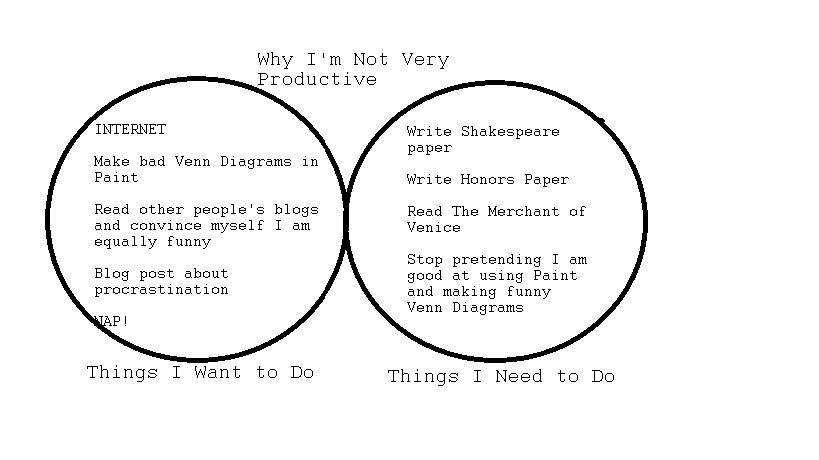Let’s go back to the basics — What is it that you really need to be productive?
Table of contents
- There might be 3 reasons you’re here
- The habits
- Avoiding distractions
- Routines
- Reflecting and journaling
- A productivity system
- Accountability, motivation, willpower, discipline
- Accountability — the buddy who drags you onto the dance floor when you’re feeling shy.
- Discipline — They’re the organiser of the party, making sure everyone’s on track and following the plan.
- Willpower — That friend who’s great at resisting temptation, and will ensure you’re not drinking too much because you’ve got to drive home.
- Motivation is the life of the party, jumping from one conversation to another, hyping everyone up.
Written by someone who got sucked into the black hole of the self-help
There is a MOUNTAIN of productivity hacks, apps, tools, tips, routines, books, podcasts, videos, habits, articles, blogs, TED talks, courses, e-books, printables, tutorials, templates, planners, journals, webinars, workshops, interviews, challenges, series, YouTube channels, Twitter threads, Reels, In-Depth Guides, listicles…
…
self-improvement strategies, life hacks, wellness practices, habit trackers, daily affirmations, brainstorming sessions, to-do lists…
…
You get the point.
There is so much content out there promising that it will change your life.
But you still clicked on this article.
Something might have gone wrong, right?
There might be 3 reasons you’re here
Case 1 — You’ve just discovered the self-improvement and productivity world, and are obsessed with it.
Case 2 — You’ve read 2873 articles, watched 9372 videos, listened to 4837 podcasts and you still don’t know what to do.
Case 3 — You’re here to build a system and take in what you think will help you, leave the rest.

An irrelevant graphic made by somebody I REALLY respect and relate with added in the middle of this article to not bore you with text and broken humour.
Which one sounds the most productive?
Of course, the third one.
If you’ve just started, don’t make the mistake of drowning in the sea of ‘tips and tricks that will increase your productivity 10x’.
Yes, these are VERY helpful, but guess when?
Only when you apply it.
And if you’ve already made this mistake (As in, case 2), you need an action plan.
In this age of information overload, it’s easy to fall into a cycle of consuming without taking actionable steps. So don’t worry, nobody’s blaming you.
You’ve watched countless videos on morning routines, read numerous articles on time management, and heard experts discuss the importance of setting goals. Yet, despite all this input, you’re left feeling overwhelmed and stuck.
You feel like you haven’t learnt anything (been there before) even though you’ve discovered every important aspect there is to productivity.
What you should do — Start a blog on Medium writing about productivity and telling other people what to do just because you can’t get things in order.
Just kidding.
What you should actually do — Reflect.
You know stuff. All you need is a plan.
Then you experiment. See what works for you. And then build a system.
But where do I freakin start? HOW do I freakin know what is actually freakin important and what to freakin take action on first?
Good question.
Let’s talk about that now.
Several aspects of self-improvement actually matter and will make the most effect on your life.
If you touch on those, make little (very little) effort on those aspects…
Avada Kedavra.
Sorry, wrong spell.
Abra-ca-dabra.
You’ll see a huge shift of improvement in your life.
Only when you take the (little) effort though.
So, according to experts, these are the main aspects you need to start working on:-
The basic habits
The distraction of social media and other things.
Routines you can brag about (After you make the little effort)
Reflecting and journalling aesthetically.
Building, organising, and maintaining your own personalised system.
Accountability, motivation, willpower, discipline and all those other fancy words.
If you belong to Case 2, there is a 115% chance you already know what to do.
If you don’t, I got you! (No, I’m not using this opportunity to brag about how I’m on the extreme level of Case 2)
The habits
What are the habits all (actually) productive people follow?
Focus on the most important tasks first.
Cultivate deep work.
Keep a distraction list to stay focused.
Use the Eisenhower Matrix to identify long-term priorities.
Use the 80/20 rule.
Break tasks into smaller pieces.
Take breaks.
Make fewer decisions.
tHat’s iT :)
Oh come on, who am I kidding?
I could continue this list until I reach Medium’s word limit on articles.

another mediocre graphic.
There are tons of productivity habits suggested by experts out there.
YOU need to decide which ones you need and f*ck the rest.
Yes, there are basic habits everyone needs to follow. (Exercise, sleep well, brush your teeth, eat healthy etc.)
Yes, other than that everything that is supposed to be making you productive but isn’t getting the job done needs to be f*cked.
Experiment and find out what works for YOU. You have options everywhere, YOU need to decide which ones you need to implement.
What works for me?
Taking a break every hour (Which is now, cya)
The one-tab rule.
Keeping my phone locked in my cupboard and giving the keys to my dog.
Setting a timer before I start any task.
Planning the day the night before.
Journalling and reflecting.
Avoiding distractions
Like Tim Urban said,
another video to add to your list of 3423 videos to watch (You will not regret this one)
there are potential distractions EVERYWHERE.
Social Media
Google earth (Don’t tell me I’m the only one)
Wattpad (Don’t tell me I’m the only one)
Texts/calls/other notifications (if you have friends)
Procrastinating by watching videos of how to stop procrastinating.

- Twitter drama
So, what do you do about these digital distractions?
Use your knowledge of apps and tools and get some website and app blockers. Or you could lock your devices and give the keys to your dog.
Here are some cool resources — Forest, freedom.app, blocksite, cold turkey, rescue time etc.
Routines
THE SECRET.
If there’s one thing I can actually brag about after all of these years, it’s this.
The one thing I have in place is routines for EVERYTHING.
Now, you don’t have to have routines for everything, but once something works for you, you’d do your best to apply it everywhere, won’t you?
But here are the ones you should have:-
A sleep schedule
A weekly planning and review routine
Cleaning and organising routines (digitally as well)
Exercising routines

An infographic that will hopefully be actually helpful to you
And there are personalised routines as well. If you are an athlete, you might have a routine to follow before starting practice. If you are a student, you might have one as well.

If you are a writer, you might have one too (Credit)
So basically the point is, have routines. They help.
Here’s some shameless self-promo:-
Reflecting and journaling
I always considered journalling to be lame.
I always thought it had nothing to do with hustling and being productive and personal growth and self-improvement, why should I care?
The reason I started caring was because what do you do when you don’t know what to do?
When you are not productive, are not able to get anything done, spend all your time taking breaks and watching puppy edits on YouTube and scrolling Google Earth to find hidden and mysterious islands in the Pacific Ocean and reorganising your wardrobe by fabric type and imagining yourself as Ariana Grande in an imaginary concert with 983629 imaginary people and
Basically, doing everything you are not supposed to be doing, journalling is the solution.
You need to write about why you are procrastinating, or avoiding work, and what do you think will help you get out of this situation.
Usually, the answers will be the same:-
Stress
Scared of the task at hand
Boredom
Anxiety
Frustration
But, you’ll be self-aware.
And once this keeps repeating, you’ll automatically realise how to get back on track.
So, yes, journalling is the solution (especially for expert daydreamers)
If I haven’t still convinced you, I’ll let the master do the work.
What about reflecting?
To me, reflecting > planning.
When you realise how much you’ve wasted your time, you take action.
You should reflect every day, week, month, 6 months, and yearly.
A productivity system
Case 2 people are well versed with this topic.
Have a system, not goals — Someone really smart
Here is what helped me build one:-
An excellent article by James Clear on why you should fall in love with systems.
Ali Abdaal’s system
My system (As a student)
Todoist (everything that you need to know here)
Now, go (after reading this article) experiment, and create your own.
You should also have a system to get back on track.
Accountability, motivation, willpower, discipline

The last mediocre ‘graphic’ of the day
These 4 words are HUGE in the self-help industry.
And guess what? They actually help.
Okay, you are at a party.
You have four friends.
Accountability — the buddy who drags you onto the dance floor when you’re feeling shy.
Get a friend, (if you don’t have one, make one) and force him/her/them to force you to work whenever your brain is convincing you to watch 5 hour long edits of puppies or see Zach Choi eat aloe vera.
Discipline — They’re the organiser of the party, making sure everyone’s on track and following the plan.
Discipline is like your own personal life coach that’s both annoyingly persistent and amazingly helpful. But the only problem is, no one listens to this friend. That’s why you have others.
Willpower — That friend who’s great at resisting temptation, and will ensure you’re not drinking too much because you’ve got to drive home.
Willpower’s that inner warrior who helps you choose the salad over the chocolate cake. There’s a thin line of difference between discipline and willpower, so you usually would want to avoid this too.
Motivation is the life of the party, jumping from one conversation to another, hyping everyone up.
It’s that burst of energy that gets you started on a project, making you feel like you could conquer the world. This friend’s mood changes faster than the release of new iPhones.
So, accountability is your best friend here.
Motivation is a one-time thing, and discipline is that one friend who once you are best friends with, won’t let go.
And to continue this already played-out metaphor, willpower is discipline’s best friend.
If you have discipline and willpower, you are non-realistic and amazing (mostly amazing).
If not, accountability will do for now. There are tons of Discord servers, Subreddits, and other communities on the internet to help you find accountability partners, but it’s better to have a real friend to back you up.
Well, the fact that you stayed through the end of this article shows your willpower, or my humour.
Thanks for reading! If you found this useful:-
📝 You might find this interesting —Navigating the Academic Highway: A Roadmap for Second-Year College Students – B.Tech/BCA/B.Sc

